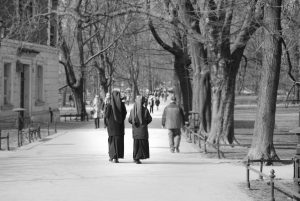California employees are entitled to broad anti-discrimination protection under state law. Employers are not allowed to discriminate against employees on the basis of gender, disability, religion, sexual orientation, pregnancy, age, ethnicity or nationality. However, it often surprises people to know there are some instances in which certain California employers can legally discriminate against some employees for certain reasons. As a Los Angeles disability discrimination attorney can explain, one type of employer most commonly cited are religious organizations; more specifically, religious schools. There are more than 40 Catholic schools from pre-K through high school just in Los Angeles alone, plus 11 Catholic colleges in the state of California. Private schools that accept federal funds (as many do) are required to abide by federal anti-discrimination laws (which, it should be noted, aren’t as stringent as state laws). What’s more, religious schools may be entitled to some exceptions. 
Teacher Wins Bid to Sue School For Disability Discrimination in Los Angeles
Recently in Los Angeles, the U.S. Court of Appeals for the Ninth Circuit ruled a fifth-grade teacher alleging she was fired for taking time off for breast cancer treatment may proceed with her wrongful termination lawsuit, reversing the trial court’s summary judgment last year favoring the school. Plaintiff was hired in 2013 as a full-time teacher. Prior to the school year, plaintiff signed an employment agreement. Although it didn’t require that she be Catholic, it did mandate that teachers model, teach and promote conformity in behavior to the teachings of the church, including leading the students in prayer each day and attend Mass with students once monthly (primarily acting as a babysitter). She had received one positive review, a few weeks after which she learned she’d been diagnosed with breast cancer. This information was shared the following week with the school, indicating she’d need time off starting in late May for cancer treatments. Just a week before she was scheduled to be on leave for treatments was the school’s deadline for informing teachers if their contract was being renewed for the next school year. Plaintiff’s contract was not. Reasons given: She wasn’t strict enough with students and further that it “wouldn’t be fair to the students to have two teachers during the next school year” (as she’d be off the first part of the year continuing cancer treatments). The supervisor later conceded it would not have been a burden to the school because it was done routinely for female teachers on maternity leave.
`Plaintiff sued for discrimination on the basis of disability, retaliation for engaging in a protected activity (seeking medical leave) and failure to accommodate her disability, each in violation of the Americans with Disabilities Act. In general, the ADA forbids employers – including religious institutions – from discriminating against a qualified individual on the basis of disability. Plaintiff provided evidence she was qualified for the job, had a disability (breast cancer) and suffered adverse employment action after the school learned of that disability. If all these elements could be proven at trial, plaintiff would win unless defendant could show the adverse employment action was based on something non-discriminatory.
Religious Employers and the Minister Exception to Employment Discrimination Lawsuits
The trial court never reached this question, though, because it found that as a fifth-grade teacher at the school was a “minister” of the Catholic church. Outlining the ministerial exception established in 2012 by the U.S. Supreme Court in Hosanna-Tabor Evangelical Luterhan Church & Sch. v. EEOC, the ministerial exception barred her claim for employment discrimination against a religious institution employer.
Churches are generally allowed to discriminate against ministerial employees or applicants on non-religious basis they otherwise would normally be prohibited. The idea for this, per the unanimous ruling of the U.S. Supreme Court, is that religious groups put their faith in the hands of ministers and government shouldn’t have a role in imposing an unwanted minister via enforcement of employment discrimination statutes that might interfere with a religious group’s right to shape its own faith and mission through its appointments. Ministers aren’t necessarily limited to the head of the religious organization, but the SCOTUS declined to established any rigid standard for who qualifies as a “minister,” saying instead the totality of the circumstances must be considered. The appellate court ruled the evidence here was not sufficient to show plaintiff was a minister, thus the school wasn’t entitled to that exception and the lawsuit for disability discrimination should be allowed to proceed.
Los Angeles employment attorneys at The Nassiri Law Group know the most important take away here is that because private religious institutions have a number of unique defenses available in employment discrimination cases – including disability discrimination – it’s important to ask your lawyer whether any of those exemptions might apply in your case.
Contact the employment attorneys at Nassiri Law Group, practicing in Orange County, Riverside and Los Angeles. Call 949.375.4734.
Additional Resources:
Court: California teacher fired for needing time off for cancer treatment can sue Catholic school, Dec. 17, 2018, By Kirstin Lam, USA Today
More Blog Entries:
California Gender Discrimination Targeted With Female Board Member Mandate, Dec. 9, 2018,m California Disability Discrimination Lawyer Blog
